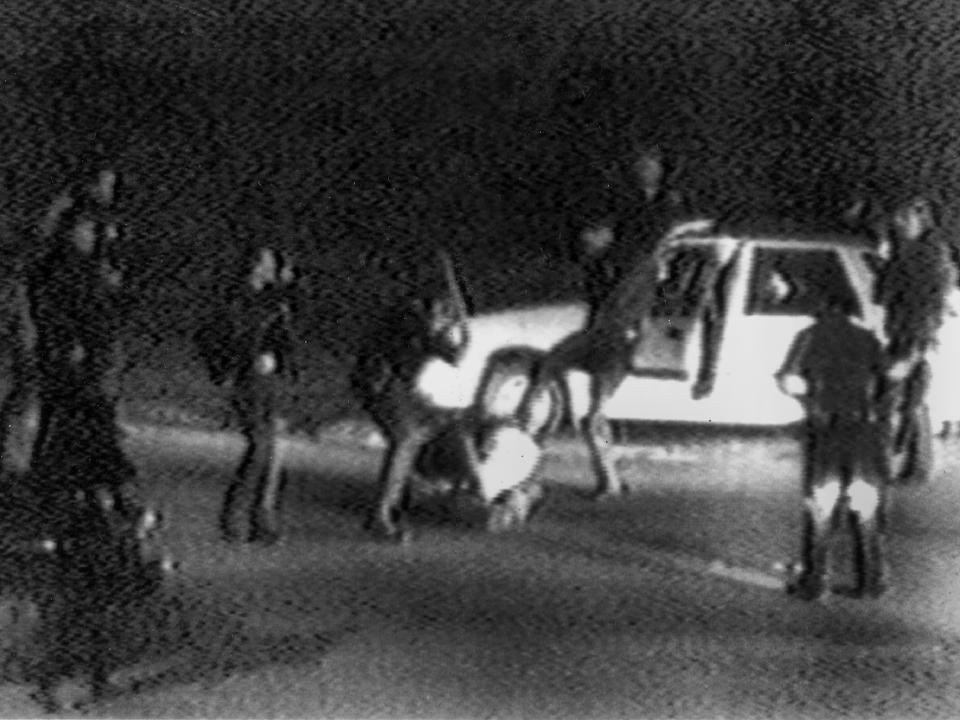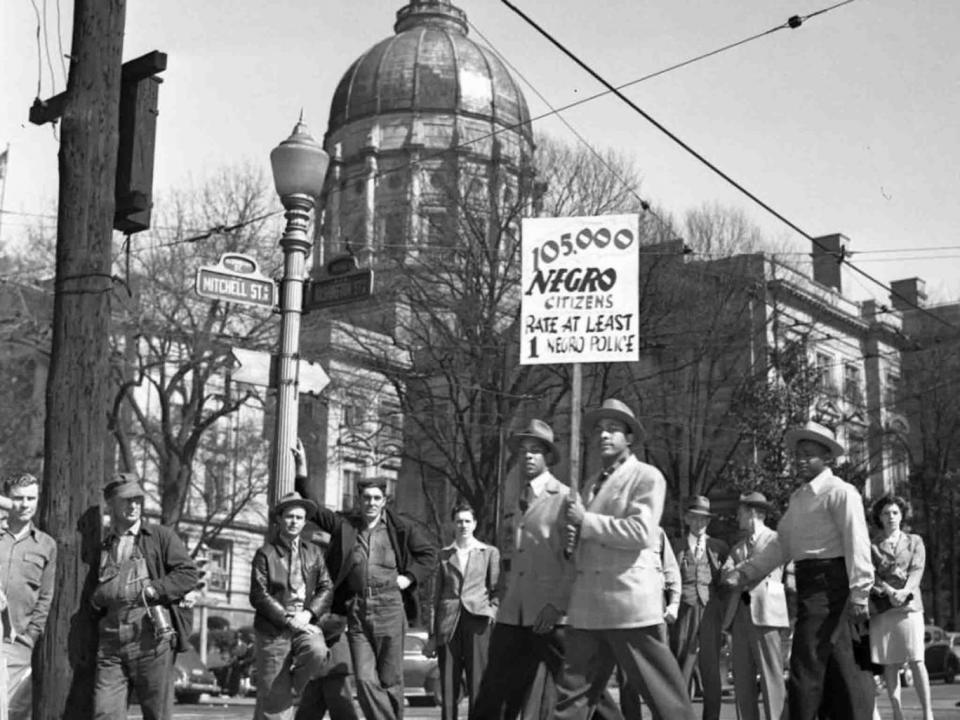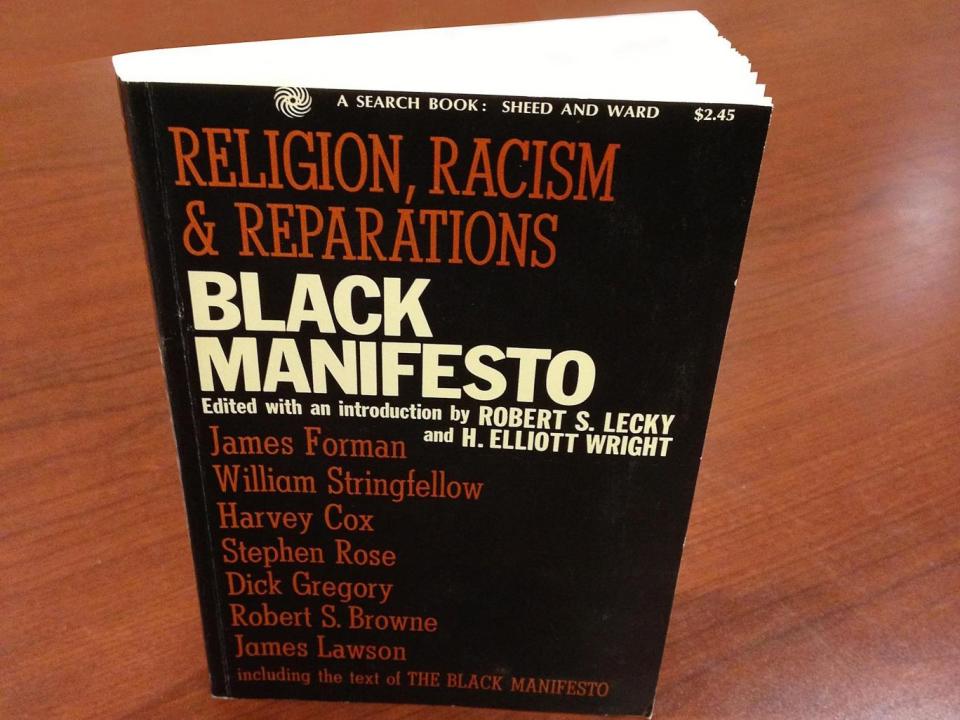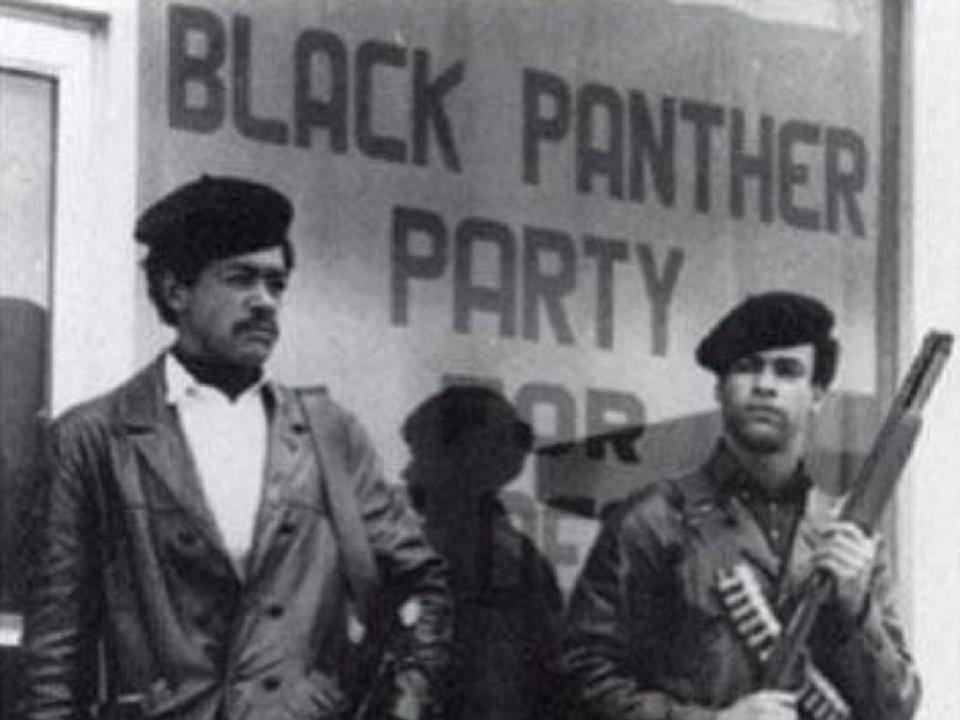Black-on-black crime, black-on-black punishment in America

James Forman can be quite irritating. When he goes to the movies with his friends, he will invariably come out again muttering, “But where have all the black people gone?” “Yeah,” his companions say, “but what did you think of the movie?” Now he is being even more irritating: his book, Locking Up Our Own: Crime and Punishment in Black America, which has just been published in the US, puts the black people back in, in more ways than one. He is a bespectacled 49-year-old black lawyer born in New York, who teaches at Yale University Law School, “a child of the Civil Rights” as he describes himself, and also the son of the James Forman, who was a Black Panther and co-wrote the Black Manifesto.
The story that we already knew: black people have been imprisoned rather a lot. Over the past couple of decades, America has succeeded in becoming the biggest prison on the planet, easily surpassing China and Russia. Mass incarceration in America has put 2.2 million people behind bars; an ever increasing number are people of colour. When I taught a class at Sing Sing prison, in upstate New York, the prisoners were all black or Hispanic. I was the only white guy in the room.
The statistics are mind-blowing: something like one in three young black men in the country will be put away at some point in their lives; in Washington DC, the figure is more like one in two.

All the above, though horrifying, is well established. But the thing that James Forman, in his irritating way, would like to point out is that many of the people who put them there are also black. Since the Civil Rights era, African Americans have for the first time been involved in the judicial system as something other than victims and jailbirds: they are also judge, prosecutor, even executioner. They have become complicit in what he calls the tough-on-crime “American mindset”, in which the solution to every problem is fondly imagined to be more law enforcement. He has said what no one else hitherto has dared to say, that the concept of black-on-black crime has to be supplemented by the facts of black-on-black punishment.

“I’m not letting white people off the hook either,” he points out, fairly enough. His book is a breakthrough and has caused something of a sensation in the US. I meet him at a “luncheon” organised by New York University, at the Institute for Humanities, where a lot of white lawyers are raving about his book. “All the freshmen should be made to read this book,” says one. Forman analyses the contradictions and ironies of a brutal system but he has enough experience, as a “public defender” for many years in Washington, to have witnessed many specific individual cases at close quarters.
One day back in 2007, Forman found himself defending a 15-year-old black youth called Brandon. He had been caught carrying marijuana and a gun. It was his first offence. Forman pleaded for probation. The prosecutor, who was black, wanted him put away. The judge, who was also black, gave him what Forman calls “the Martin Luther King speech”. Which in a shortened form comes out something like this: “You think you had it hard, young man. Well, we had it a lot harder, under Jim Crow [the explicitly racist laws that made America practically an apartheid state until the mid-1960s]. Martin Luther King – and other civil rights activists – died so that you would have the freedom to choose. And yet you chose to deal drugs and carry a gun. Therefore you betrayed Civil Rights. And you are going down.”

Forman realised at that point that something very strange was going on, hitherto undocumented. The fact is, as his very engaging and lucidly written book carefully explains, after Civil Rights, African Americans were recruited by the legal system in the US, in the form of police officers, as lawyers, as judges, and as mayors and legislators. There was a notion, as an idiom of the time – the 1970s – had it, that “black policemen do not shoot black jay-walkers”. What Forman discovered, trawling through a couple of decades of court archives, was that it was something like the opposite, and the immense phenomenon of mass black incarceration is partly the effect of black officers of the law cracking down ever harder on black offenders.
“In one respect [Forman writes], the century-long fight for police integration had succeeded. Its victory brought a prominent new set of voices to American criminal justice policy: those of the nation’s dozens of black police chiefs. But many of those voices would propel, not constrain, an emerging tough-on-crime movement.”
As Forman puts it, this blunt fact “complicates the narrative”. “I kinda hate that word,” he said, talking about the word complicate. “But it’s right.” The grand narrative that he was speaking about is, in its broad outlines, the Hegelian/Marxist master-slave narrative. It is the narrative that his father, James Forman senior, must have passed on to him when he was a child. There is a grand tradition, contained in blues songs and the works of WEB Du Bois, given forceful expression in the writing of James Baldwin and Eldridge Cleaver (Soul on Ice), in Malcolm X, perhaps too in the aphorisms of Muhammad Ali, and all the way through, more recently, to Between the World and Me, by Ta-Nehisi Coates, which says the following: there is a fundamental conflict between black and whites in America, which is the hangover of slavery, and which means that all the suffering and poverty of black people is the effect of a conspiracy by white people to keep them down. In their place. Which very often is in jail.

All of the above is very often true. And there is no shortage of examples of police brutality. But James Forman Jr has – in a rather Oedipal way – deconstructed his father’s narrative and shown that it is not only white guys who are guilty of treating black people as if they were second-class citizens. This is a post-Panther narrative, revisionist history. Neither white nor black history, but something greyer, and more ironic. I recently witnessed an incident on 125th Street in Harlem which seemed to me to summarise the revisionist outlook. One young black guy came out of a shop and delivered a box of some kind to another young black guy waiting in a car at the kerbside. Having dropped off the box, he raised a fist in salute (exactly like Tommie Smith and John Carlos at the 1968 Olympics) and said: “Black Power, brother!” and the man in the car replied, “Black Power!”. And they both laughed. Because, I think (a) there was kind of nostalgia, a recollection of the days of the Panthers and (b) the idea of a “Black Revolution”, the dream of the Black Manifesto, has not come to pass in quite the way Forman senior foresaw.
Forman junior points out that it is not black people who are disproportionately hassled by the law: it is a specific class of African Americans: typically relatively uneducated blacks, living either in urban ghettoes or poor rural communities. “If you’re a black man born in the Sixties and a high school dropout, you are 10 times more likely to get locked up than if you graduate.” And their jailers are often educated black people, with a high school qualification or a degree. Forman doesn’t mention Frantz Fanon, but he could have done. Fanon was the psychologist from Martinique who analysed the imperial mindset and noticed that very often the colonised absorb, mimic or replicate the mentality of the colonisers. But what is the key to this mentality?

I was reading the Forman book on the subway when a young black guy, who had been reading it over my shoulder, asked me about it and we fell into conversation. He said his name was Ashanti, originally from the Caribbean, but now living in Brooklyn, and he was a Rastafarian who thought that African Americans should really be called “American Africans”. He had been the victim of many a stop-and-frisk (he asked me how many times I had been stopped and searched – answer, zero). And he pointed the finger of blame at Christianity. When you analyse the “Martin Luther King speech”, you have to say he has a point.
James Forman Jr on his father
My father James Forman gave every ounce of his being to the black freedom struggle. He taught me that African American history is American history, and that it is worth writing about. Not a day goes by that I don’t think of him, and miss him.
The sociologist Émile Durkheim argued that even in a society of saints you will have just the same ratio of crime because the standards will go up. He was wrong. The amount of crime and the number of criminals and the numbers of people being jailed will actually increase. This is one of the paradoxical effects of Civil Rights reforms. Most black prisoners are convicted for drug-related crimes. But when it comes to toning down drug legislation and decriminalising marijuana, for example, it is often black ministers, “reverends”, or “pastors” who are the most vocal opponents. On moral grounds, in accordance with the essentially Christian morality of purity: drugs are a “cancer” or a “poison”, etc, that must be “rooted out” or “cleansed” and must not be allowed to “infect” our young people. Mass incarceration comes under the heading of the “unintended consequences” reported by James Forman.

He doesn’t let President Barack Obama off the hook either. Obama wanted to ease up on “non-violent offenders”, but he was perfectly sanguine about ever tougher sentences for so-called “violent offenders”. “I compliment him for trying to move the ball,” Forman says. “But it’s an unrealistic distinction. You could even argue that there is no such thing as non-violent crime, so therefore more people get caught up in punishment. Obama reinforced it.”
Again there is a theological morality lurking in the mindset, even of someone like Obama. The most evangelical society on Earth is also the biggest prison. I went back to the Black Manifesto of James Forman senior, the Black Panther Forman. And I found that his analysis agreed with Ashanti. Back in 1969 the National Black Economic Development Conference was calling for “reparations” from churches and synagogues and advocating reading out the Black Manifesto in church in place of sermons. “We were kept in bondage and political servitude and forced to work as slaves by the military machinery and the Christian church working hand in hand.”

Back in the Sixties, the Vietnam era, Forman Sr called for revolution. Forman Jr, in his contemporary, post-Panther perspective, argues that the current mania for imprisonment is the effect of a gradual “ratcheting-up” of the system. And the only way out is to “ratchet it down again”. He isn’t blaming either black or whites. “We are all responsible,” he says. “No one gets a pass.”
Fair comment. But I couldn’t help noticing the white, smooth, smug, silver-haired Christian evangelist on TV showing at the gym on 125th street the other day. “I’m a pragmatist,” he said, “I want to be blessed.” Cue beatific smile. He explained that he was looking forward to the “Rapture” when he and fellow believers would be “caught up” and carried off to heaven. Partly as a consequence, intended or not, of the demand to be blessed, the only thing most black people can look forward to in America is capture and being caught up and carried off to prison. Or, as James Forman Sr put it, “belief in God hurts my people”.
‘Locking Up Our Own: Crime and Punishment in Black America’ by James Forman Jr is out now, published by Farrar, Straus and Giroux
Andy Martin is the author of ‘Reacher Said Nothing: Lee Child and the Making of Make Me’ (Bantam Press, RRP £18.99). He teaches at the University of Cambridge. Follow him @andymartinink

 Yahoo Sport
Yahoo Sport 





































